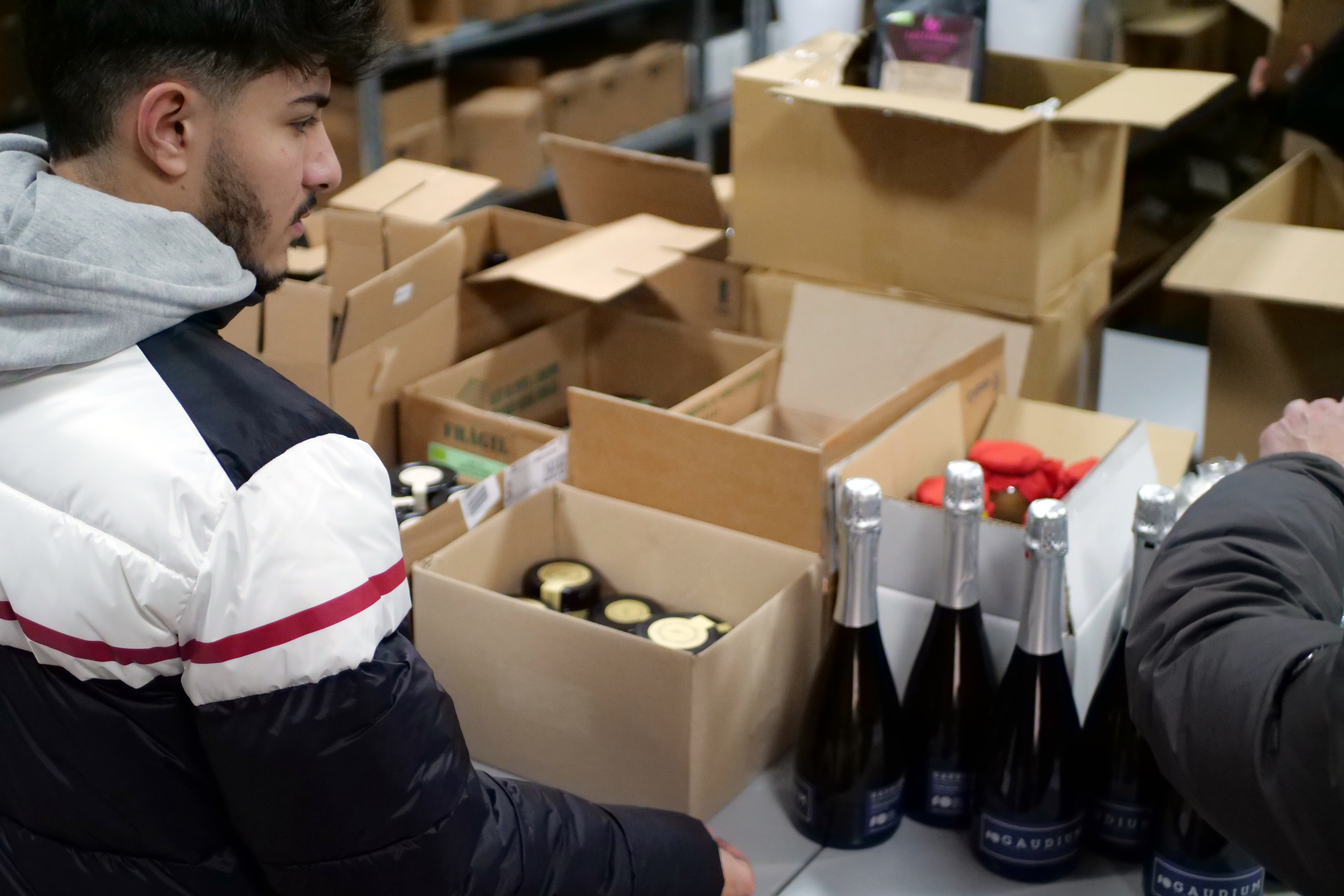EURECA
Good Practices


 Pictures:
Pictures:Gioosto
Gioosto. Sustainable B2B shop for social inclusion and better environment
Country:Main Subject:
Description:
Gioosto, located in the province of Benevento, southern Italy, operates a warehouse that consolidates around 1,000 sustainable products from nearly 100 companies using organic raw materials. The company focuses on providing a carefully selected range of products that meet the growing demand for genuine sustainability.
Currently, Gioosto conducts its sales online, shipping products through a BtoB transportation system. Each product in the warehouse undergoes a thorough preliminary analysis of the company and its production methods. Gioosto is committed to reducing the environmental impact of goods production and adopts a comprehensive approach to tackling climate change, addressing both economic needs and sustainability.
Product selection at Gioosto is guided by the NeXt index, a sophisticated tool that has gained recognition and certification by the European Commission. The NeXt index evaluates sustainability across six pillars: Supply Chain, Environmental Impact, Workplace Conditions, Community Relations, Organizational Governance, and Customer Relations.
Gioosto's portal aims to create opportunities for innovative and responsible businesses, particularly small or vulnerable ones, by aggregating them and generating critical mass. The platform encourages consumers to "vote with their wallet," promoting sustainable practices and products. This approach empowers consumers to drive change towards a more sustainable economic system through informed production and consumption choices.
For producers, Gioosto aims to enhance resources and know-how for managing sustainable e-commerce, connect local best practices to strengthen networks and offerings. For consumers, it seeks to make sustainable products more accessible, offering a centralized portal that saves time and resources through aggregated, multi-sector shopping options.
Despite more efficient warehouse and transport systems available in Northeast Italy, Gioosto chose to establish its facility in a rural area of southern Italy, confronting the region's typical employment challenges.
Reference links:
https://esg.nexteconomia.org/
https://www.nexteconomia.org/valutazione-certificazioni-aziende/
www.nexteconomia.org/buone-pratiche-per-la-sostenibilita/
www.gioosto.com
SDG direct/ indirect short justification:
Direct SDGs:
- SDG 13 Climate Action: The project indirectly addresses climate action by promoting sustainable production methods, reducing environmental impact, and encouraging a holistic approach to combat climate change.
- SDG 12 Responsible Consumption and Production: The initiative focuses on promoting sustainable and responsible consumption by selecting and offering products with environmentally friendly and ethical production practices.
- SDG 8 Decent Work and Economic Growth: By supporting companies that adhere to sustainable practices, the initiative contributes to creating decent work opportunities and fostering economic growth.
- SDG 9 Industry, Innovation, and Infrastructure: The project involves innovative approaches to connect sustainable products with consumers, contributing to advancements in industry practices and infrastructure
Indirect SDGs:
- SDG 1 No Poverty: Through creating new business opportunities for smaller entities, the initiative indirectly supports poverty reduction by contributing to economic development in rural areas.
- SDG 2 Zero Hunger: Although not the primary focus, by supporting local and sustainable production methods, the initiative may indirectly contribute to food security and agricultural sustainability.
- SDG 15 Life on Land: By promoting sustainable practices and conscious consumption, the initiative indirectly contributes to protecting terrestrial ecosystems and biodiversity
Justification:
The initiative involves selecting and promoting products that adhere to sustainable and environmentally friendly production methods. This contributes directly to reducing the carbon footprint and addressing climate-related challenges.
The use of the NeXt ESG Index, which measures sustainability across various pillars, including supply chain and environmental relationships, reflects a commitment to assessing and improving environmental performance, aligning with SDG 13.
The practice takes a holistic approach to climate change by considering economic and social factors along with environmental ones. It addresses the need for systemic changes in production and consumption patterns to combat climate change effectively.
Keywords:
City:
Location:
Questions:
- How can a small business become part of this initiative?
- Is transportation typically problematic in rural southern Italy?
- What steps are being taken to address packaging and energy use in their transportation processes?
Authors:
Agostino Cefalo, Gramigna ODV




